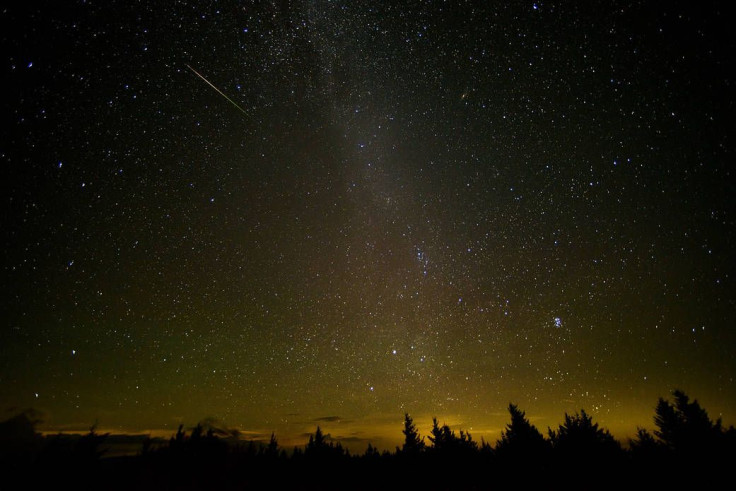Perseid Meteor Shower 2017: These Websites Offer Live Stream Of The Spectacle

This weekend, the night sky is all set to witness a significant amount of meteor activity — the Perseid Meteor Shower.
However, the most appropriate time to watch the Perseids, perhaps the most popular meteor shower of the year, would be late at night on Saturday, or in the early hours next morning. Those who watch the night sky Saturday night might get to see 50 to 60 meteors an hour in the northern hemisphere.
But before you plan to watch the spectacle, choose a place far from any lights, and give yourself about 30 minutes for the eyes to adjust to the dark.
Some experts have suggested the appearance of a bright gibbous moon later in the night, when the meteor shower would be at its peak, may render the show less impressive, the National Geographic reported. One can expect the number of meteors, going across the sky, to drop to 20-30 meteors per hour once the moon rises fully.
Read: Is Mobile Internet Broadband? Americans Voice Concerns Over FCC Proposal
To make sure you don't miss the spectacle, you can also watch the live stream of the meteor shower on various websites. The Virtual Telescope Project offers a live stream of the shower with Italian astrophysicist Gianluca Masi. The stream is scheduled to begin Saturday at 4 p.m. EDT.
Slooh.com that live streamed the event last year would feature the shower live starting 8 p.m. ET Saturday. Although the live stream is only available for the members, the cost of membership is just $5
NASA said on its website that a live broadcast of the shower would be available on Ustream through the night on Aug 11-12 , beginning 10 p.m. EDT, and also on Aug 12-13 at the same time.
Bill Cooke of NASA’s Meteoroid Environments Office in Huntsville, Alabama, said the forecasters were predicting a Perseid outburst this year, which could lead to a number of meteors rising as high as 200 per hour. The last Perseid outburst happened in 2009, according to NASA.
Read: When A Healthy Diet Is Actually Unhealthy
Earlier in a blog post, Cooke also dismissed reports suggesting that this week’s event would be the “brightest shower in recorded human history”. “This year, we are expecting enhanced rates of about 150 per hour or so, but the increased number will be canceled out by the bright Moon, the light of which will wash out the fainter Perseids. A meteor every couple of minutes is good, and certainly worth going outside to look, but it is hardly the ‘brightest shower in human history,’” he said.
The Perseid shower takes its name from the constellation of Perseus, the point from which all the meteors appear to hail down from the sky. The constellation that can be seen in the northern sky is named after the mythical Greek hero who defeated Medusa by chopping off her snake-covered head, according to the Guardian.
© Copyright IBTimes 2024. All rights reserved.











